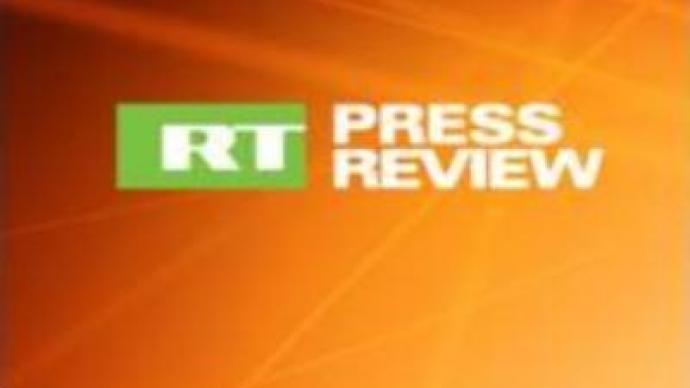Russian press review, 20.02.07

The Russian press speculates about the country’s political future ahead of the 2008 elections, writes about the “bronze soldier” scandal, visa regulations between Russia and the EU and a new bill on lie detectors.
Izvestia daily features a political analyst taking a guess at Russia’s leadership once President Putin leaves office next year. Vladimir Putin does not intend to hold onto his post, but he does intend to hold onto his power, writes the analyst. In other words, once the incumbent president resigns, the man leading the country will still be Mr Putin. To maintain a grip on power, the author contends, Vladimir Putin will need to select a successor who will consent to play the role of “junior tsar” and surround himself with many influential figures. The author goes on to say that Mr Putin is unlikely to promote his successor through the post of prime minister – he will rather appoint a presidential candidate independently.Rossiyskaya Gazeta daily looks at Estonia, where an e-mail which purports to have been sent by Prime Minister Andrus Ansip appears to turn common beliefs upside down. The author of the e-mail calls on Estonia’s Members of Parliament to refrain from dismantling Soviet War monuments. Estonian MPs were surprised to receive such an e-mail from the Prime Minister who is one of the most zealous opponents of the “bronze soldier”, a particularly disputed Soviet memorial in Tallinn. But Ansip’s office said the e-mail was fake. The Prime Minister himself was quick to underline his earlier position, saying the “bronze soldier” could be removed on the basis of existing laws.The Novye Izvestia newspaper reports that obtaining visas for Russian citizens has become harder, even though Russia and the EU have just agreed to ease travel restrictions. The daily believes the visa issue is politically motivated. It doesn’t matter whether you live in a prosperous and stable country, or not. The main factor, says the paper, is your country’s foreign policy. It goes on to say that some less rich countries with high corruption and crime, such as Bulgaria and Romania, enjoyed visa-free travel even before they joined the EU. While better-off Russia faces visa restrictions because of its independent policy.Nezavisimaya Gazeta daily has followed a Moscow Duma debate on a bill allowing lie detectors to be used in public service. If passed, the law could see polygraphs being used to filter out untrustworthy applicants for public and court positions. But the debate revealed that the expensive devices are highly controversial. While a professor from the security service academy stressed the detectors were extremely reliable, some parliamentarians voiced moral concerns and questioned the infallibility of the tool.
You can share this story on social media:












